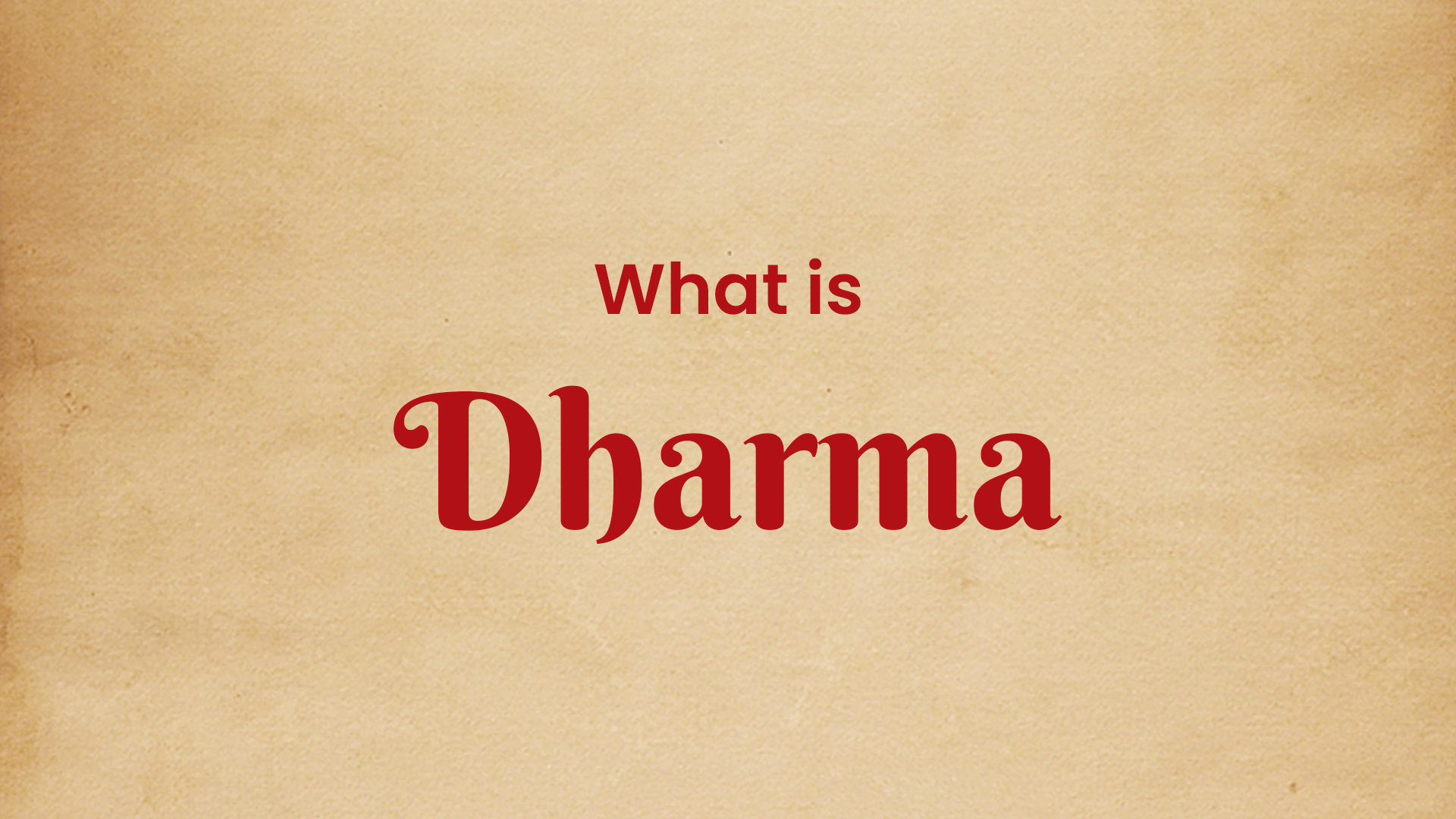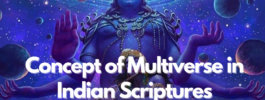The term ‘Dharma’ has been a subject of widespread misconception among the masses. Many individuals mistakenly regard it as a religion, but this is entirely devoid of truth. Each sect has bestowed its own unique interpretation of Dharma, shaped by their respective beliefs. However, it is vital to emphasize that Dharma does not confine itself to any particular sect, nor does it serve as a mere interpretation within Hinduism, Buddhism, or any other religious doctrine. If Dharma is not a religion, then what precisely does it entail? Dharma represents a unified and everlasting concept of moral consciousness. Unfortunately, this profound understanding is often misread and misinterpreted, owing to a prevalent dearth of comprehension. A profoundly sorrowful anecdote exists, illustrating how the meaning of Dharma has tragically eluded the minds of many.
Once upon a time, a man was traveling from one village to another when he encountered a well on his path. The well was nearly dried up, resulting in its deepening. Unbeknownst to the man, he accidentally fell into the well. Struggling to free himself, he desperately cried out for help.
After some time, a monk of a certain sect happened to pass by and heard the man’s cries. Curious and concerned, the monk approached the well and peered down. The trapped man respectfully greeted the monk and implored him to rescue him from his predicament. The monk closed his eyes, taking a moment to reflect deeply. With a solemn expression, he responded, “According to the teachings of our sect, it is believed that one cannot save another; each person must save themselves. Therefore, I advise you to make every effort to free yourself from this mundane well.” Having spoken these words, the monk moved on and left the scene.
Sometime later, a wise sage happened to pass by the same well. Upon hearing the distressed pleas of the trapped man, the sage approached the well and glanced down. As he observed the dire situation, a sense of compassion welled up within him. However, the sage closed his eyes and resumed his journey. Startled and desperate, the trapped man shouted after the sage, demanding to know why he would leave without offering assistance. The sage stopped and kindly responded, “Even the mere thought of helping or rescuing you would be a manifestation of attachment, whereas my purpose here is to detach myself from the world. Therefore, I must harbor no desires. Moreover, the principles of my sect forbid me from assisting you, for if I were to save you today and you were to harm someone else in the future, I would bear the burden of your sins along with you. Consequently, helping you would be a personal loss, which is why I must continue on my way.”
Having conveyed this explanation, the sage resumed his journey, gradually disappearing from sight.
Sometime later, a wise gentleman happened to be passing by the well. As he heard the cries of the trapped man, he approached the well and looked down at the man. The trapped individual pleaded for a rescue, stating his inability to free himself. In response, the so-called wise man said, “This entire world is nothing but an illusion, a fabrication of the divine. It resembles a well, just like the one you’re stuck in. Even if I were to save you from this well, you would inevitably fall into the well of worldly troubles someday. It is advisable for you to remain here.” After imparting this advice, the wise man walked away.
After some time, a yogi passed by the same well. He, too, heard the cries of the trapped person and approached the well. Upon witnessing the predicament, the yogi spoke to the trapped individual, saying, “I wish to help you, but it appears that falling into this well is a result of your own actions, your karma. Suffering is an inevitable consequence of negative karma. If I were to intervene and prevent your suffering, I would also be bound by the weight of sin. Therefore, it is preferable for you to endure the problem that has arisen from your own karma.” With these words, the yogi departed from the scene.
Gradually, the trapped individual inside the well began to lose hope, resigned to the idea that rescue and survival were beyond reach. However, at that very moment, a prominent leader from the community happened to be passing by the vicinity of the well. As soon as he caught wind of the desperate cries for assistance, he hastily made his way towards the well, his concern evident.
Upon reaching the well, he surveyed the trapped person, his eyes filled with empathy. With genuine interest, he inquired, “Firstly, please enlighten me as to how you came to be stuck in this well?” Eager to share his story, the trapped individual recounted the entire sequence of events to the leader.
Deep in thought, the leader processed the account given to him, and a single thought resounded within his mind. He replied, “Having listened attentively to your narrative, the one thing that strikes me is the responsibility of the government in your unfortunate predicament. If only they had ensured the installation of safety measures around this well, then you would not have found yourself in this dire situation. I implore you to wait here momentarily, while I gather the village residents. It is my intent to showcase your current state and shed light on the government’s negligence.” As soon as the leader concluded his words, he swiftly made his way toward the village, fueled by determination.
After enduring the harrowing experience of being trapped in the well for an extended period, all semblance of hope had evaporated from the weary individual. Fatigue from struggling against the water’s relentless pull had drained his strength, and even his desperate cries for help had faded into feeble whispers. It was in this desolate moment that a gentleman happened upon the well, his curiosity piqued by the sight before him. He inquired if anyone had fallen into the depths.
Locking eyes with the gentleman, the trapped individual mustered whatever remained of his resolve and responded, “Yes, I have indeed fallen here. Please, I implore you, rescue me.” Without hesitation, the gentleman stood and tossed a rope into the well, swiftly pulling the trapped person to safety. As the recently freed captive regained his composure, he extended heartfelt gratitude towards his savior. In a humble yet enigmatic manner, the gentleman replied, “Friend, do not thank me. Rather, it is I who should express gratitude towards you.”
Perplexed, the once-trapped individual sought clarification, “Why do you thank me? What have I done to warrant such appreciation?” With a serene countenance, the gentleman began to elucidate his perspective. “From the moment you plunged into the depths of the well, I bore witness to your struggle. My beliefs dictate that entry into heaven is only granted to those who have saved or protected another’s life. Initially, when you called out for help, you possessed strength and vitality. I waited, biding my time, until it became evident that your hope was all but extinguished, and your ability to swim against the tide was nearing its end. It was at this precise juncture that I presented the lifeline, ensuring your rescue. For you see, it is written in our scriptures and revered texts that one secures a place in heaven through the preservation of another’s life. I had wandered these forested paths for countless days, carrying a rope in hand, yet encountered no one in need. But today, you, my friend, gave me the opportunity to ascend to heaven. Thus, I express my gratitude to you for securing my celestial destination.” With these words, both men departed, continuing on their separate paths.
The narrative conclusion sheds light on the common misinterpretation of Dharma and the resulting confusion that arises from a lack of comprehensive understanding of its principles within sects. Each sect holds its own distinct definition of Dharma. However, Maharishi Veda Vyas has brilliantly encapsulated the essence of Dharma in a single verse or, more specifically, a half-line. Let us explore Veda Vyas Ji’s shloka:
श्रूयतां धर्मसर्वस्वं,
श्रुत्वाचैवावधार्यताम्।
आत्मनः प्रतिकूलानि,
परेषां न समाचरेत्।।
– महर्षि वेद व्यास
“Listen and comprehend the entirety of Dharma,
Upon hearing, it should be applied.
Do not engage in actions toward others
that you would not wish upon yourself.”
This profound statement by Veda Vyas Ji reveals the true essence of Dharma. It emphasizes the importance of considering our own feelings and expectations when engaging in any physical, verbal, or mental actions. Before carrying out a deed, we must place ourselves at the core and contemplate how we would perceive someone treating us in such a manner. Do we desire this behavior? If our response is affirmative, then such conduct or action aligns with Dharma. Veda Vyas Ji asserts that any action we undertake, which we wish others to reciprocate, embodies the true essence of Dharma.
Therefore, always remember that Dharma entails treating others as we desire to be treated. We must never treat others in a manner that we would not anticipate from them. It is imperative to consistently treat others with kindness and respect, as we all yearn for nothing less than fair and honorable treatment from those around us. It is my sincere wish that by now, each of you has comprehended the essence of Dharma, and I hope that all of you will walk the path of Dharma throughout your lives.
Shubham Bhavatu.








